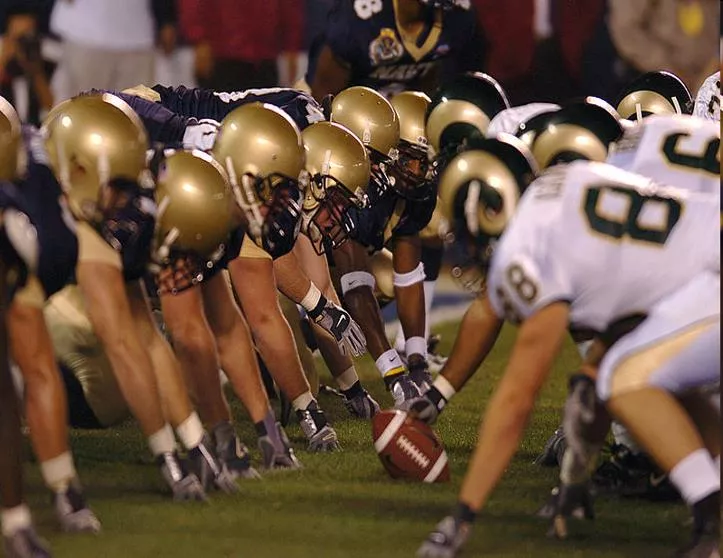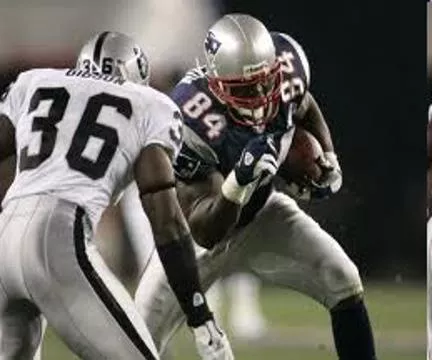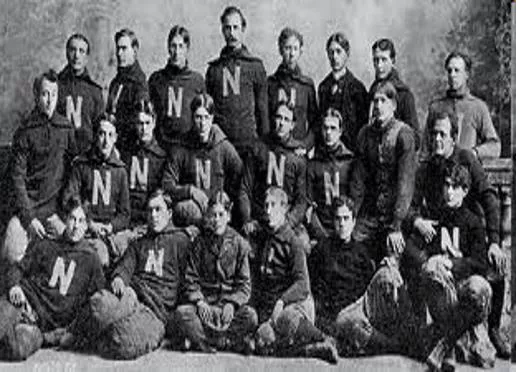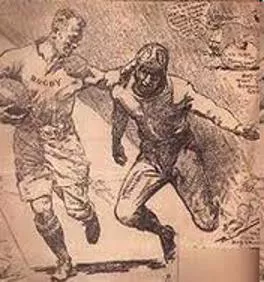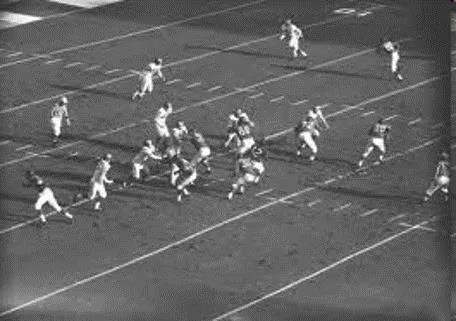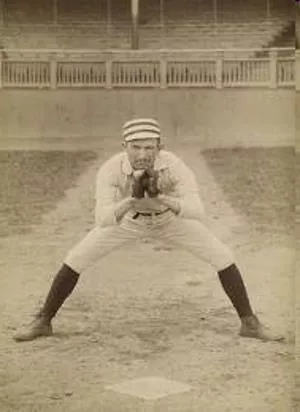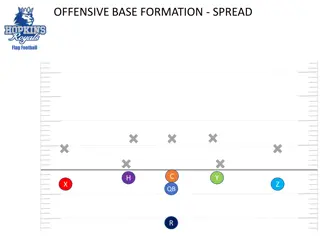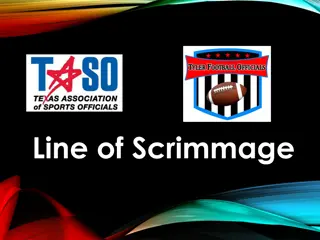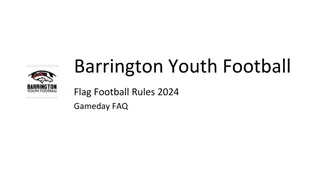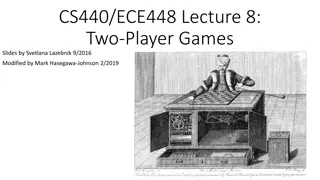The Evolution of American Football: From Origins to Modern Game
American football evolved from early versions of rugby football and association football in the 19th century in the United Kingdom. The game was formalized in the United States with rule changes by Walter Camp, leading to the creation of the intercollegiate football association. The first American football game was played in 1869 between Rutgers and Princeton, setting the stage for the development of the sport into the modern gridiron game we know today.
Download Presentation

Please find below an Image/Link to download the presentation.
The content on the website is provided AS IS for your information and personal use only. It may not be sold, licensed, or shared on other websites without obtaining consent from the author. Download presentation by click this link. If you encounter any issues during the download, it is possible that the publisher has removed the file from their server.
E N D
Presentation Transcript
American football is a sport played between two teams of eleven with the objective of scoring points by advancing the ball into the opposing team's end zone. It is known in the United States simply as football, and it may be referred to as gridiron informally or outside the United States and Canada. The ball can be advanced by running with it or throwing it to a teammate. Points can be scored by carrying the ball over the opponent's goal line, catching a pass thrown over that goal line, kicking the ball through the opponent's goal posts or tackling an opposing ball carrier in his own end
History The history of American football can be traced to early versions of rugby football and association football. Both games have their origins in varieties of football played in the United Kingdom in the mid-19th century, in which a ball is kicked at a goal and/or run over a line. Many games known as "football" were being played at colleges and universities in the United States in the first half of the 19th century.
American football resulted from several major divergences from rugby football, most notably the rule changes instituted by Walter Camp, considered the "Father of American Football". Among these important changes were the introduction of the line of scrimmage and of down-and-distance rules.
The first American football game was played in 1869 between Rutgers and Princeton. The game was played between two teams of 25 players each, used a round ball, and resembled a combination of rugby and soccer in its rules; the ball could not be picked up or carried, but it could be kicked or batted with the feet, hands, head or sides, with the ultimate goal of advancing it into the opponent's goal. Rutgers won the game 6-4. Collegiate play continued for several years in which matches were played using the rules of the host school.
WALTER CAMP A former student and teacher at Yale University In 1873, he attended a meeting where representatives from Columbia, Rutgers, Princeton, and Yale universities created the intercollegiate football association (IFA). They created the rule that each team is only allowed 15 plays per drive.
Collegiate play continued for several years in which matches were played using the rules of the host school. Representatives of Yale, Princeton and Rutgers met on October 19, 1873 to create a standard set of rules for all schools to adhere to. Teams were set at 20 players each, and fields of 400 by 250 feet were specified. Harvard abstained from the conference, as they favored a rugby-style game that allowed running with the ball.
English Rugby rules at the time required a tackled player, when the ball was "fairly held", to put the ball down immediately for scrummage. Camp proposed at the U.S. College Football 1880 rules convention that the contested scrummage be replaced with a line of scrimmage" where the team with the ball started with uncontested possession. This change effectively created the evolution of the modern game of American Football from its rugby origins. He is credited with innovations such as the snap-back from center, the system of downs, and the points system, as well as the introduction of the now-standard offensive arrangement of players a seven-man offensive line and a four-man backfield consisting of a quarterback, two halfbacks, and a fullback.
Camp was also responsible for introducing the "safety", the awarding of two points to the defensive side for tackling a ball carrier in his own end zone followed by a free kick by the offense from its own 20-yard line to restart play. This is significant, as rugby has no point value award for this action, but instead awards a scrum to the attacking side five meters from the goal line.
Ice Hockey is known to have evovled around the game of field hockey which was played in Northern Europe for hundreds of years. The modern version of ice-hockey finds its origins in the rules laid down by a Canadian named J G Creighton. His rules were implemented in the first game of ice hockey played in Montreal, Canada in the year 1875. In fact, the rink or the playing area for ice hockey was actually used in the game called curling in Scotland during the 18th century. Initially there were as many as thirty players for each side and the goals were two stones frozen on one end of the ice. The rules for the game of ice hockey were drafted at McGill University in Montreal, Canada in the year 1879. Ice hockey found its way to the US in the year 1893. By the early 1900s, the sport had become prevalent in parts of Europe including the UK.
In 1799, William Pierre Le Cocq, in a letter written in Chesham, Buckinghamshire, England, provides the earliest known reference to the word 'hockey .
A game played on ice with a curved bat and a ball existed before Ice Hockey in the form of IJscolf, or Colf on ice, which was a popular game in the low countries between the Middle Ages. The game was played with a wooden curved bat (called Colf or Kolf) and a ball made of wood or leather between two poles or simply convenient nearby landmarks, with the object of hitting the chosen point with the least number of strokes. However, most believe that ice hockey evolved from stick- and-ball games, played outdoors, and adapted to the icy conditions of Canada in the 19th century. The games of British soldiers and immigrants to Canada, influenced by stick-and-ball games of First Nations, evolved to become a game played on ice skates, often played with a puck, and played with sticks made by the Mi'kmaq of Nova Scotia.
Hockey is played on an ice rink with 6 people on each side including a Goaltender, 2 Defensemen, and 3 Offense men ( Left wing, Center, Right wing). You can t ever check a guy into the boards by hitting their back. You cannot cross the blue line on the opposing side till the puck is carried over or you will get a whistle for offsides.




